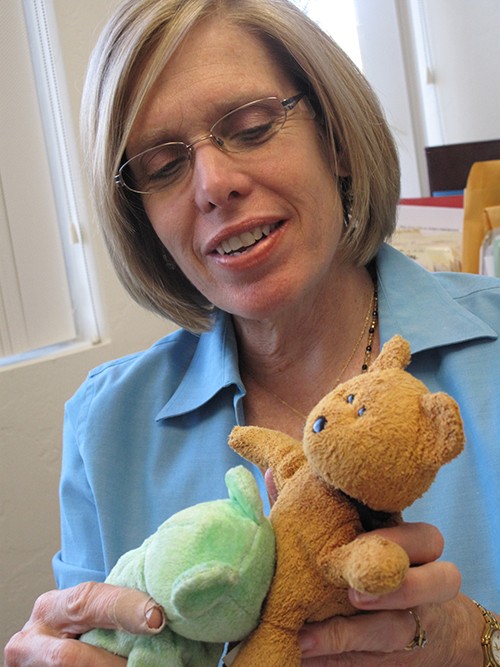Oral sex can lead to oral cancer — especially in men.
Human papillomavirus spread through oral sex has outranked tobacco use and heavy drinking as the lead cause of oral cancers, according to a study presented during an American Association for the Advancement of Science meeting in February. The study found that the HPV virus is the leading cause of 64 percent of oral cancers and is most common in men.
Nearly 37,000 people in the United States are diagnosed with oral cancer and 8,000 die from it every year, according to the Oral Cancer Foundation. Men are twice as likely to develop oral cancer as women.
The dangers of oral sex come from exposure to HPV, a sexually transmitted virus comprised of more than 70 different strains, according to Lee Ann Hamilton, assistant director of UA Health Promotion and Preventive Services. About half of sexually active people are exposed to HPV at some point, which can result in genital warts or lead to various types of cancer.
The study, led by Ohio State University researcher Maura Gillison, found oral cancers caused by HPV may affect people at younger ages than those due to other factors. Risk increased with the number of partners on which someone had performed oral sex.
The research could change the perception that the effects of HPV are riskiest for women because the virus is strongly linked to cervical cancer. Campaigns for the vaccine Gardasil urge women to become “”one less”” woman with HPV and may contribute to the view, Hamilton said.
Gardasil protects people against four strands of cervical cancer, including the strand linked to oral cancer, according to Hamilton. Campus Health Service regularly vaccinates women against HPV but only “”a handful of men,”” she said.
“”The first man who called and asked about it, I said ‘Yes!'”” Hamilton said. “”Most men think ‘I don’t need to worry about this because I don’t have a cervix.'””
Eric Bevans, a freshman majoring in philosophy, politics, economics and law, said he had generally heard about HPV in the context of women’s health.
“”I just haven’t thought of it as that big of a threat to me,”” he said.
Bevans said hearing about the link between oral sex and oral cancer made him consider receiving the vaccination.
“”That’s shocking,”” he said.
Gillison cited changing sexual behavior as a possible reason for the increase in oral cancer attributed to HPV in the study. Oral sex may be viewed as safer than intercourse, according to Hamilton.
“”I don’t think people understand they can get infections from oral sex,”” she said. “”People seem to think about risk coming from genital to genital (contact). Oral sex does have risks.””
People are especially at risk for spreading HPV because the virus oftentimes does not show symptoms, according to Andrew Abalos, a graduate student in the Mel and Enid Zuckerman College of Public Health who is doing dissertation work on the prevalence and development of HPV in men and women. Genital warts can appear several weeks or months after exposure while most cancers do not develop for many years.
Some people who have HPV never show signs of infection, Abalos said.
“”The virus is able to evade the immune system and trick the body into thinking nothing’s wrong,”” he said. “”HPV has the ability to hide.””
Hamilton said vaccination can prevent the spread of HPV. She also suggested people use condoms or dental dams during oral sex or intercourse to protect themselves from exposure.
“”They’re not just protecting themselves,”” she said. “”They’re protecting all of their partners.””








